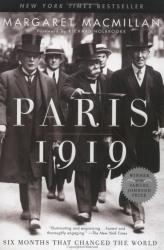Spoilers ahead. Like any good techie Vancouverite, I know my Douglas Coupland. My favourite novel remains his 2003 Hey Nostradamus! – a very human, relatively realistic novel, where the characters and relationships take priority over the cultural insights. jPod, by contrast, is Coupland at his quirktastic extreme. It’s a very dark, bleak take on humanity and the amorality of the present day.
On the one hand, I recognise the context at a glance; the perks and psychoses of the video game industry are only too familar, down to the tiny details like trying to beat Super Metroid in under an hour. I’d be interested to hear from someone way outside that context, to see if all the discussion of texture artists and so on actually makes sense. The comparison of techies to autistics remains too scarily accurate, I suspect; Wired has even commented on the unusual rate of autism found in Silicon Valley, when techies mate with techies and many recessive traits are expressed simultaneously. Curious stuff…
The hectic go-go-go over-the-top tone really put me off initially, but it quickly evolved into some real belly laughs as everything got progressively more insane. Coupland’s quirky books are endlessly quotable, and his use of himself as a narrative device and character are utterly fantastic in jPod.
But the central theme of the book? I’m not sure what to make of it. My take on it is that jPod is indeed a post-Google version of Microserfs, where the utopian dreams have faded and revealed the ultimately vacuous uses of new technology. Google and the Internet permeate the entire book, and yet are never used for any positive purpose; they have become simply another part of the entertainment/consumer sphere. All of the world’s information is now at our fingertips, but we don’t really want it. We can no longer feign ignorance of all the problems around us, so we have to invent new coping mechanisms to allow us to avoid dealing with the problems of the world. Ethan is just an example of this coping mechanism: an amoral disinterest in the madness unfolding around him.
Did it have to be so bleak? Did all of the characters have to be so forgettable? Hasn’t this essentially been said before, many times?
So, like everyone else blogging about this book, I’ll close with a few quotes.
“Oh God. I feel like a refugee from a Douglas Coupland novel.” [Beware, Little Lytton. He’ll be making submissions soon.]
“I ended up falling asleep watching the Schindler’s List bloopers DVD”
“And the air [in China]! Okay, imagine that you’ve built a bonfire of telephone poles – the ones dripping with creosote – and throw in a fax machine, a photocopier, some asbestos stacking chairs and a roasting chicken.”
“Inside the house here, the bathrooms have no doors, and it’s a liberating feeling to be in them, it really is. Doors are nothing more than flat wooden burkas invented to keep women from feeling proud and fallopian.”
“You spend your life feeling as if you’re perpetually on the brink of being obsolete – whether it’s labour market obsolescence or cultural unhipness.”
And, in a non-sequiter, my favourite GenX quote, from Dag’s father: “Hey, Sport. Isn’t the smell of gasoline great? Close your eyes and inhale. So clean. It smells like the future.”
 Mayo Clinic Guide to a Healthy Pregnancy
Mayo Clinic Guide to a Healthy Pregnancy
